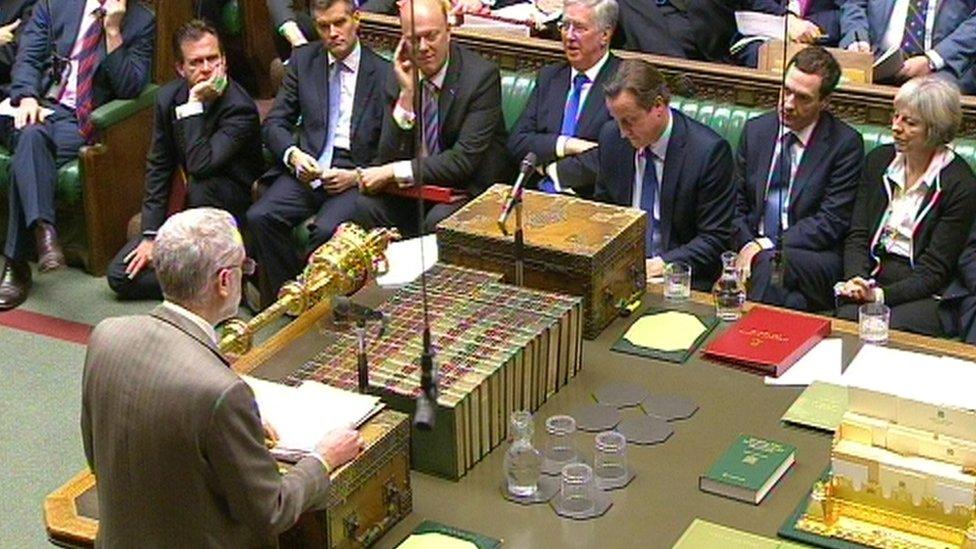Political battle on two fronts
- Published

In Westminster, political battle is being waged on two fronts.
David Cameron is engaged in what seems to be an increasingly successful campaign to persuade the House of Commons to expand British military air strikes into Syria.
He gave more details of what had been billed as a "comprehensive plan", not just for bombs to fall on the so-called Islamic State's stronghold in Syria, but a billion pounds for reconstruction; a perhaps optimistic assessment that there are 70,000 moderate forces on the ground with whom we could work; and an increasing confidence that the time is right to join America, France and even Russia in air strikes.
No secret
But the government is reliant on some support from the Labour Party to get its way. And Jeremy Corbyn's party is embroiled in an enormous row of its own tonight.
It's no secret that he is a longstanding opponent of military intervention in the Middle East. After the debate today he met with his shadow cabinet to try to hammer out a common position.
After a difficult couple of hours, it was plain, despite the leader being opposed, most of the shadow team is in favour of strikes. So they agreed to disagree, and to talk again after the weekend.
Then to the astonishment of some of Mr Corbyn's own team, just a couple of hours later, his office published a letter that made it abundantly clear there is no chance he will back air strikes, and his position is set.
Making that move has, in the words of one shadow minister, "lit the blue touch paper" in the shadow cabinet. Another said members were so angry they had to be "scraped off the ceiling".
Many Labour MPs are furious that he took a step like that without consulting them. For their part, sources close to Mr Corbyn insist that he is taking a lead, communicating his position to the wider party as he is perfectly entitled to do.
Dilemma
Indeed, his views against military intervention are part of what won him the leader's job in the first place.
But there's a risk of a massive political bust-up, and perhaps the collapse of his front bench.
The crunch now is whether or not Mr Corbyn will allow MPs to vote as they see fit next week, perhaps as early as Wednesday. Or whether he will try to force them to agree with his position.
If he is intent on doing that, it is highly likely that members of the shadow cabinet will resign.
I understand some of them told him they would potentially back air strikes in Syria when they took on their jobs in the shadow cabinet in September - they knew this dilemma might come.
If, as now seems "inevitable" as one senior member of the shadow cabinet suggested, Mr Corbyn allows a free vote, the team will be bruised by all of this but probably intact. But if he tries to force his will, the political consequences for his leadership could be grave.